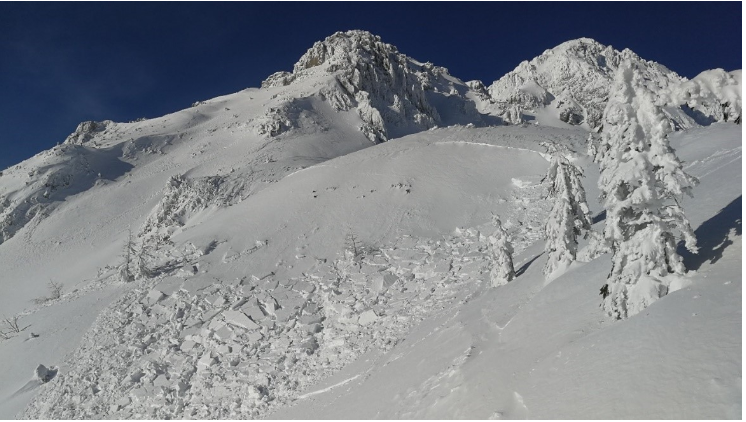Project number: J6-4627 ARRS
Project duration: 1.10.2022 – 30.9.2025
Overall budget: 300.000 €
Cofinancing: 100 % ARIS
Lead partner: ZRC SAZUAnton Melik Geographical Institute
As part of the project led by the Anton Melik Geographical Institute, in collaboration with the Slovenian Forestry Institute, we are focusing on analysing the occurrence of snow avalanches in the Julian Alps and the Karawanks. Our research will involve the following steps:
1. Monitoring Meteorological Conditions and Snow Cover Measurements: we will monitor weather conditions and collect data on snow cover thickness in the Julian Alps and the Karawanks. Additionally, continuous temperature measurements within the snow cover profile in the Karawanks and monitoring snow avalanches using optical camera footage in both mountain ranges will be conducted.
2. Analysis of Historical Meteorological Data and Snow Avalanche Records: By analysing archival meteorological data and historical records of snow avalanches, you will assess the impact of climate change on avalanche risk. Using current meteorological data and snow cover characteristics, you will fill gaps in our understanding of snow avalanche occurrence based on geographical variables.
3. Dendrochronological Analysis: The results will be evaluated through dendrochronological analysis at the Zelenica location.
4. Modelling Avalanche Hazard: Using the Analytic Hierarchy Process (AHP), we will create a model for avalanche hazard in vulnerable landscapes in Slovenia, incorporating geographic information system (GIS) data.
5. Enhancing the Avalanche Registry Database: For both locations (Julian Alps and Karawanks), we will supplement the avalanche registry database. Selected results will be presented in the Avalanche Atlas, currently being developed as part of an ongoing project, providing relevant spatial planning information to the public.
Our research will contribute to a better understanding of snow avalanches and improve safety in mountainous areas.


